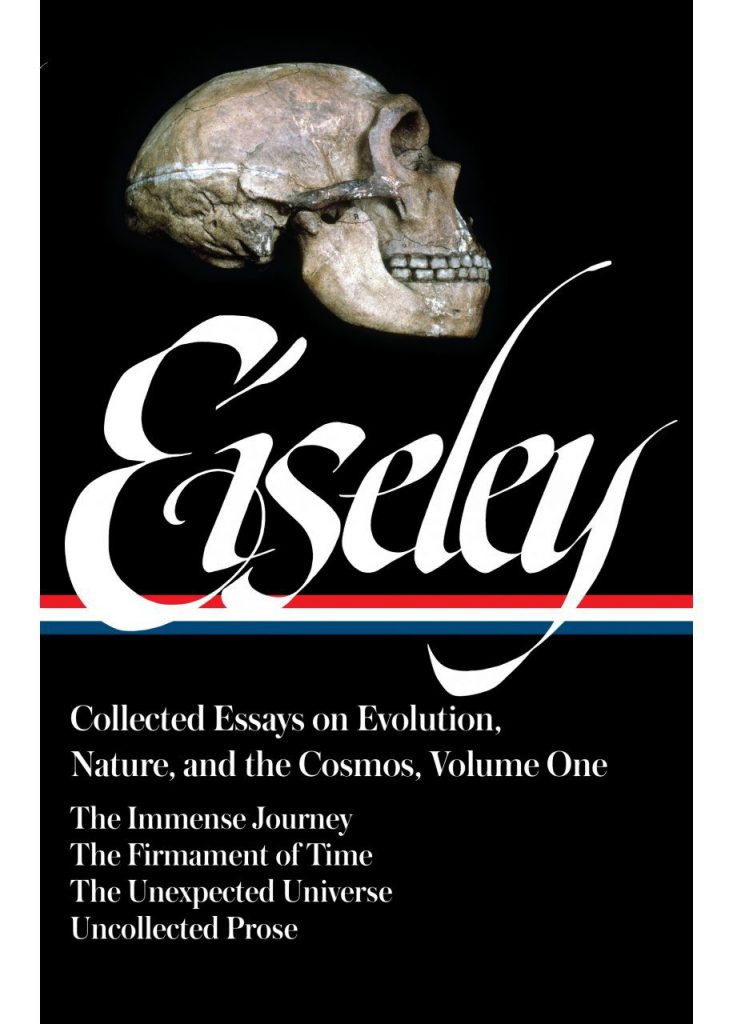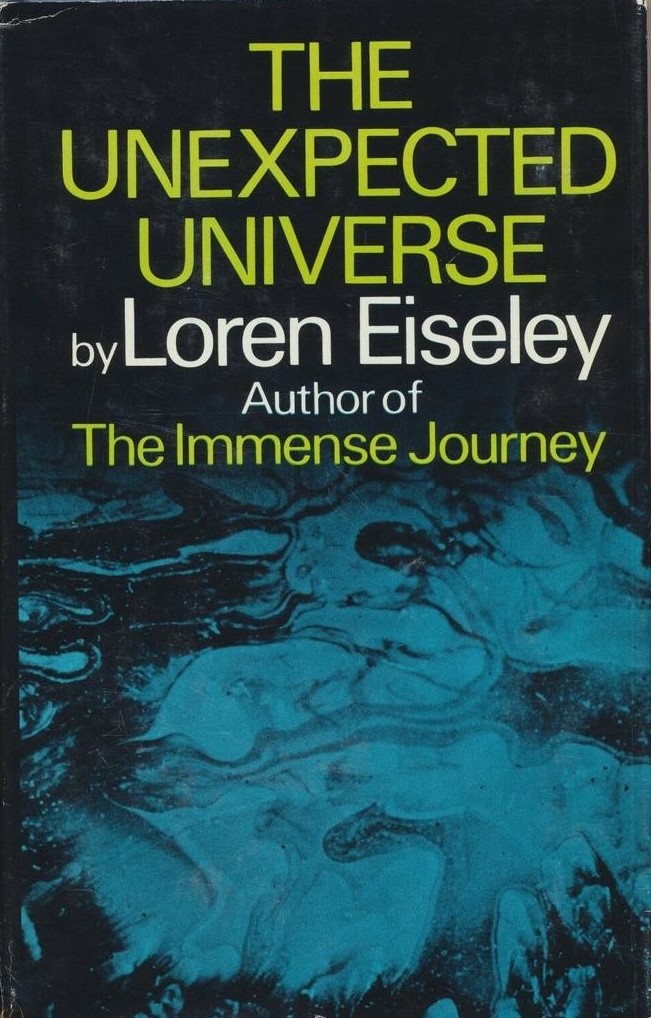If a Mount Rushmore of Nebraska literary figures were ever to be carved into the Dakota sandstone through which Lincoln’s Salt Creek flows, the bespectacled visage of Loren Eiseley would have to be considered for inclusion. Eiseley (1907 – 1977), a renowned paleontologist, anthropologist, poet, and science writer, was born in Lincoln and spent his formative years here (his early childhood home on South Street still stands and there is a Lincoln City Libraries branch named after him), establishing a lifelong pattern of wandering widely, often alone, and investigating what nature revealed to him.
Eiseley is a compelling writer because his interpretation of these clues is always an amalgam of hard science knowledge, compassionate humanism, and a sort of stoic poetry that often seems to stop just short of surrendering to the void. This is particularly true of the ten essays that comprise his 1969 book, The Unexpected Universe. Each essay is a set piece built around some image or experience that has profoundly affected Eiseley, and he spends the essay turning his scientific eye inward — examining his own emotional strata and why he is, to use modern parlance, so “shook” — and outward, drawing upon a classical set of allusions that include Plato, Shakespeare, Darwin, Emerson, Thoreau and others to frame the piece in context for the reader.
Similar to the transcendentalist modes of Thoreau and Emerson, being alive in human form is ultimately a cosmic mystery for Eiseley, and life is a quest for meaning. These essays suggest that this meaning or understanding tends to emerge in coded disguise, such as the letter-like markings of an alphabet shell, a suddenly recalled memory of a “junkman” and his horse-drawn cart at the corner of R and 13th in 1923, or a giant cecropia moth that invades an outdoor theatrical play staged under the lights. These sparks of connection with the rest of the universe are fleeting, leaving the author perhaps even more alone than he realized before.
In this sense, The Unexpected Universe is truly a product of its cultural-historical moment in the late 1960s, the same zeitgeist that infuses Stanley Kubrick’s 2001: A Space Odyssey, created right before human beings placed one of our own on the moon on July 21, 1969. After decades of sci-fi pulp fiction speculation about encountering other intelligent life forms on other planets, the reality of the vast emptiness of outer space and the lonely human position within it became more apparent.
The evolutionary anthropologist Eiseley reminds us that it was always so. However, within matter there is solid-arity: throughout the book he imbues most every living thing and once-living thing with the mythopoeic quest of Odysseus, at one point even lamenting individual blood cells reaching their adventure’s end as they pool below his head after a fall. Reading Eiseley is an exercise in heightened awareness of the microcosmic, macrocosmic, and long geologic history of the earth that offers a renewed sense of how special it is to be alive in this moment.
Eiseley, Loren C. The Unexpected Universe. San Diego: Harcourt Brace & Company, 1994.



